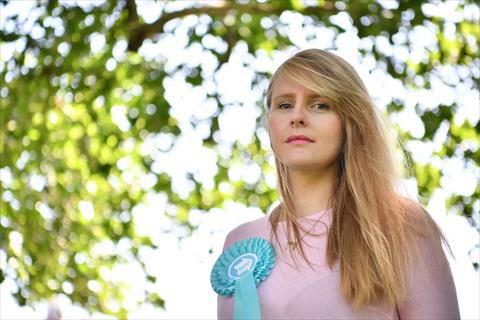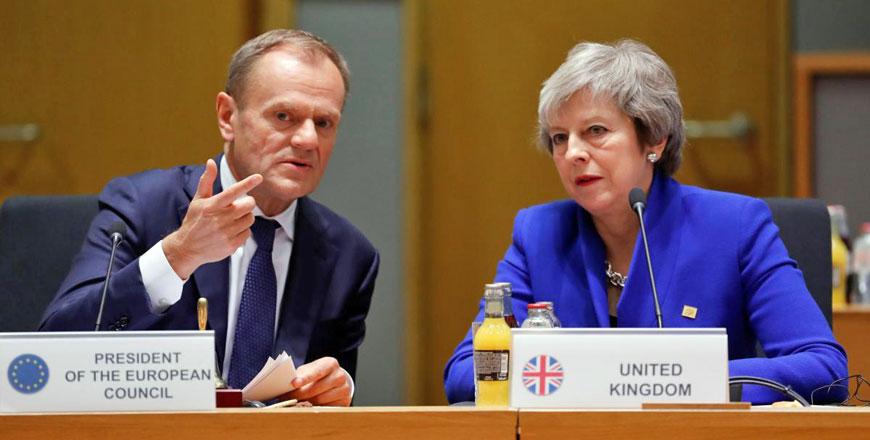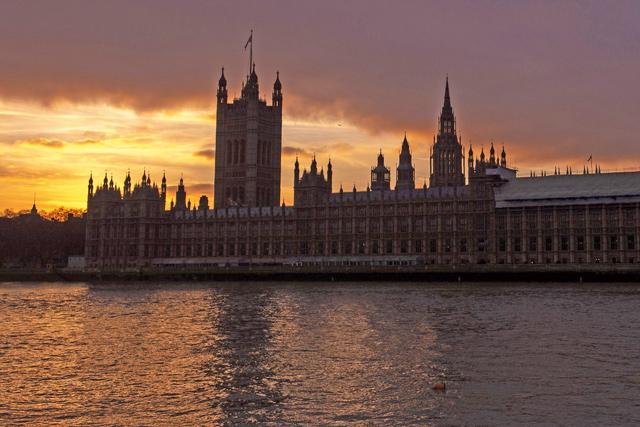You are here
Germany to agree to Brexit delay but France sets conditions as May arrives in Paris
By Reuters - Apr 09,2019 - Last updated at Apr 09,2019

Anti-Brexit demonstrators protest outside the Houses of Parliament in London, Britain, on Tuesday (Reuters photo)
PARIS/BERLIN — Germany and other European Union powers will accept Prime Minister Theresa May’s request for another delay to Brexit, but French President Emmanuel Macron will seek to limit Britain’s influence as it grapples with its departure.
In a sign of just how far the three-year Brexit crisis has sapped British power, May dashed to Berlin and Paris on Tuesday to ask German Chancellor Angela Merkel and Macron to allow the world’s fifth largest economy to delay for a second time.
More than a week after the United Kingdom was originally supposed to leave, May, the weakest British prime minister in a generation, has said she fears Brexit might never happen as she battles to get a divorce deal ratified by a divided parliament.
After her pledge to resign failed to get her deal over the line, she started crisis talks with the opposition Labour Party in the hope of breaking the domestic deadlock ahead of the April 12 exit date.
But as May arrived at the Elysee Palace in Paris to a guard of honour, she was unable to trumpet any breakthrough with Labour. So May was asking for a delay until June 30.
“People are tired and fed up — but what to do?” one EU diplomat said. “We won’t be the ones pushing the UK off the cliff edge.”
Another EU official involved with Brexit said an extension was very probable as no European power wanted the chaos that they fear a no-deal exit would sow through financial markets and the EU 27’s $16 trillion (£12.26 trillion) economy.
“Nobody wants to pull the plug by 13th April,” said the official. “But for how long — I don’t know. And France will ask a lot of questions in Brussels.”
Shortly before May landed in Paris, an official in Macron’s office said that “in the scenario of an extended delay, one year would seem too long for us”.
He added that if Britain did delay its exit, it should not take part in EU budget talks or in choosing the next president of the EU’s executive commission — and that the other 27 member states should be able to review its “sincere cooperation”.
Irish Prime Minister Leo Varadkar said Macron would not veto May’s extension but wanted conditions attached.
“He [Macron] certainly wants to know about conditionality, particularly the issue of the United Kingdom being involved in future (EU) decision-making,” Varadkar said.
Related Articles
DUBLIN — When the other new members of the European Parliament take their seats in Strasbourg on Tuesday, Barry Andrews will be sitting at h
BRUSSELS — European Union leaders warned the British parliament not to wreck Theresa May’s Brexit deal, saying a package agreed with the pri
LONDON — Prime Minister Theresa May said on Sunday that Britain would be in uncharted territory if her Brexit deal is rejected by parliament



















